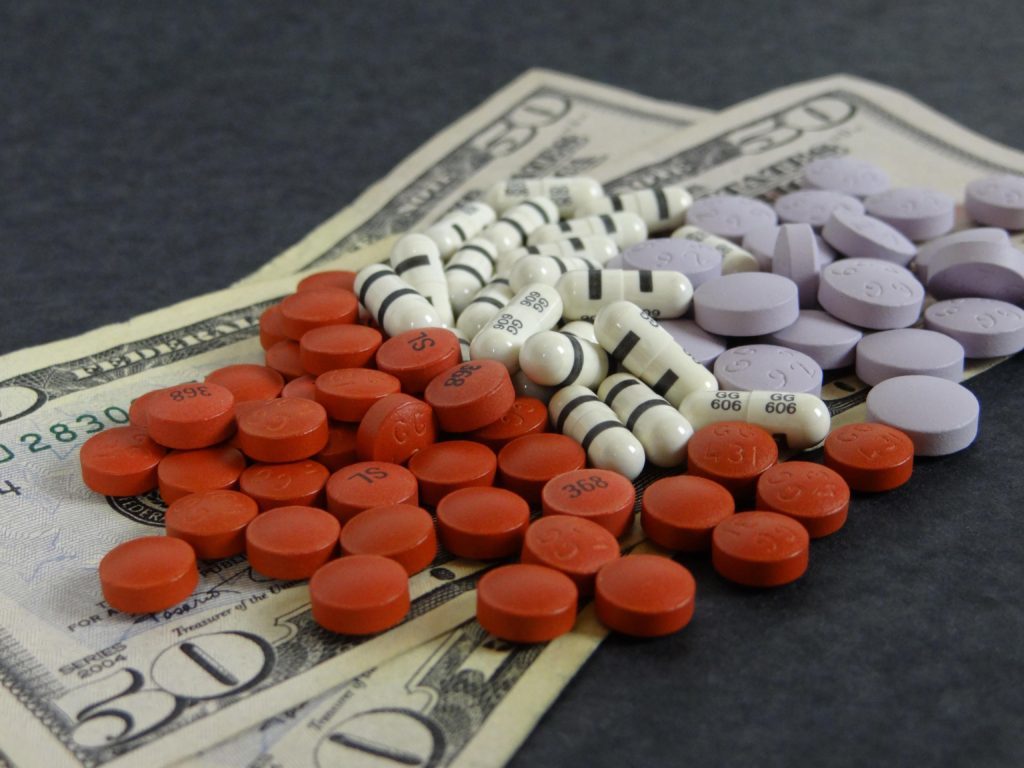
Avoid PPIs for Indigestion
Why should you avoid PPIs for Indigestion? PPIs are Proton pump inhibitors. They were approved by the FDA for temporary use to heal ulcers, decrease inflammation of the esophagus, or treat excess hydrochloric acid production. These addictive drugs inhibit the production of hydrochloric acid in the stomach.
PPI’s include such products as Omeprazole (Prilosec), esomeprazole (Nexium), rapid release omeprazole (Zegarid), lansoprazole (Prevacid), delansoprazole (Dexilant), rabeprazole (Aciphex), and pantoprazole (Protonix). They are commonly prescribed for gastrointestinal issues and many people continue to take them because the drugs allow some to continue eating anything they want. However there are many reasons to avoid PPIs for Indigestion.
Long-term inhibition of hydrochloric acid can be devastating to one’s health, so it’s seems unconscionable that these drugs are available over the counter. Hydrochloric acid (HCl) serves several vital roles in our gastrointestinal health.
HCL’s acidity is our body’s first line of defense against foodborne illness and infectious disease. HCl unfolds proteins so they can be broken down into amino acids for absorption. HCl prepares other food particles for absorption (for example, the acidity of HCl is imperative for iron absorption) and stimulates pancreatic secretions to break down foods. The lack of HCl leads to increased risk of infection and malabsorption of nutrients.
It’s been determined that long-term use of PPIs results in decreased blood supply to the stomach, destroying the integrity of the stomach lining leading to inflammation, a well known cause of stomach cancer. PPIs cause increased production of nitrates, which are converted to known carcinogens (nitrosamines); converts bile acids into carcinogens; increases cell production leading to stomach polyp formation; and decrease vitamin C levels in the stomach. All of these occurrences are risk factors for stomach cancer.
Studies have shown that the use of PPIs leads to reflux of bile from the duodenum into the stomach. This can increase the risk for stomach and esophageal cancer. PPIs are commonly prescribed to reduce the amount of acid reflux in an attempt to decrease the risk of Barrett’s esophagitis (a risk factor for esophageal cancer). However, in effect, PPIs actually increases the risk of esophageal cancer!
PPIs create lower acidity in the body. Lower acidity allows for the increased growth of bacteria in the stomach and small intestine. This overgrowth of bacteria can lead to gastroporesis (lack of stomach emptying); SIBO or small intestinal bowel overgrowth (most notably suspected in people who have excessive belching and bloating after eating); and symptoms of irritable bowel syndrome, such as constipation and diarrhea.
And that’s not all. Food allergies are increased in people taking PPIs because proteins are not broken down completely, resulting in increased inflammation throughout the GI tract. Stomach and intestinal permeability (leaky gut) is greatly increased and the immune cells associated with allergies, (known as eosinophils) increase and can lead to eosinophilic esophagitis. Autoimmune conditions such as celiac disease, Hashimoto’s and type 1 diabetes are also associated with intestinal permeability.
Studies have shown that long-term use of PPIs is directly associated with osteoporosis. Therefore in 2010, the FDA revised the labeling for PPIs indicating the increased risk for hip, wrist and spinal fractures. Keep it in mind that hip fractures in women result in very high rates of death. Have I mentioned that people who take PPIs also have an increased risk of pneumonia?
Have you ever heard of Clostridium difficile infection? It is a life threatening overgrowth of commonly occurring bacteria in the GI tract that usually occurs after the use of antibiotics. Studies have shown that the use of PPIs significantly increases the risk of C. difficile infection. Other studies have shown that taking statins with PPIs can increase the risk of C. difficile overgrowth without recent use of antibiotics.
Keep in mind, that just because a drug is available over-the-counter, does not mean it is safe. PPIs can interfere with the absorption of other drugs, such as antifungals and they can increase the absorption of drugs, such as benzodiazepines, warfarin and phenytoin, which can be life threatening. PPIs can affect your lab values, such as liver enzymes, bilirubin, cholesterol, PSA, electrolytes, white and red blood cells and platelet counts. Finally, PPIs decrease the absorption of nutrients, such as calcium, zinc, folic acid, magnesium, iron and B12 leading to a plethora of metabolic imbalances and disease.
Hopefully this information has convinced you to avoid PPIs for indigestion or gastric woes. Stopping them is difficult and requires careful weaning due to rebound hyperacidity. It’s important that you work with a doctor who is knowledgeable about how to determine the underlying causes of gastric distress and reflux so that they can be eliminated before weaning you from PPIs. Protecting the gastric and esophageal lining from hyperacidity is imperative as well as addressing nutrient imbalances.
Incidentally, overeating is one of the primary causes of gastric distress and reflux so keep this in mind as the holiday’s role around so you can avoid reaching for a pill to relieve your discomfort!



